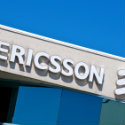Ericsson boss takes aim at regulatory authorities, arguing that net neutrality rules could impede the rollout of mission-critical 5G services.

BARCELONA -- MWC 2018 -- Ericsson CEO Börje Ekholm has urged European regulators to relax rules on net neutrality when it comes to 5G services, arguing that legislation could hinder the rollout of mission-critical applications.
Speaking at Ericsson AB (Nasdaq: ERIC)'s press conference at Mobile World Congress this morning, the Swedish CEO said that applications such as remote surgery would have to take priority over other traffic.
"The principle of net neutrality is not to discriminate [against], throttle or degrade based on content but not all traffic is created equally and we don't believe this will work in the 5G future," he told reporters and analysts. "There will be a need for a regulatory regime that allows service providers to create services that are differentiated based on user experience."
While regulatory authorities in the US have recently taken legislative steps to scrap some of the net neutrality protections introduced under the previous administration, European authorities have moved in the opposite direction.
Under the current framework, operators would be able to provide certain "specialized" services as long as these do not have an impact on other traffic. But there is still a lack of clarity over what this will mean in practice.
Telecom operators and vendors are particularly worried that authorities will not allow them to use a 5G technique known as network slicing, which would allow an operator to provide many different types of virtualized network service over the same physical infrastructure.
Bjorn Taale Sandberg, the head of research for Norway's Telenor Group (Nasdaq: TELN), says the European regulatory position on slicing is no clearer than it was two years ago, when he originally flagged his concerns. (See Net Neutrality Rules Threaten 5G, NFV – Telenor.)
"Net neutrality interpreted strictly means not sharing radio spectrum or reserving parts of bandwidth for one user group and you have to give everyone the same right of access," Sandberg told Light Reading in the run-up to this year's Mobile World Congress. "Guaranteeing latency and priority for emergency services will be hard if you can't do that."
Asked today by an audience member if non-neutral networks would hand an advantage to large content providers over smaller ones, Ekholm said: "There are mission-critical applications that need to be thought of differently. We probably need a different type of regulation here."
Want to read the hot news and views from Mobile World Congress 2018? Check out our dedicated MWC 2018 news section to keep up to date with the key developments from Barcelona.
If it impedes the introduction of network slicing, the lack of regulatory clarity on net neutrality could spell trouble for Ericsson, which hopes that investment in 5G technologies and services will fuel sales growth at its ailing networks business.
The company has been hit by a downturn in its main equipment markets and also lost market share to Chinese rivals Huawei Technologies Co. Ltd. and ZTE Corp. (Shenzhen: 000063; Hong Kong: 0763). Ekholm has said his priority is to restore profitability at Ericsson, which earlier this year reported its fifth successive quarterly operating loss. (See Ericsson: Desperately Seeking Profitability .)
Operators internationally are starting to invest in 5G-ready technologies following progress on new radio standardization in late 2017.
For Ericsson, a new cycle of equipment spending cannot come soon enough. Ekholm today urged his customers to start preparing for 5G, insisting that "being early has value."
Most service providers that were quick to launch 4G technology have been able to maintain or grow their market share over the intervening period, said Ekholm. "We believe this will happen with 5G as well," he told his audience.
For all the hype surrounding network slicing, and new 5G service opportunities in non-consumer markets, Ericsson expects 5G will at first be used to provide higher-speed mobile broadband connections to customers using smartphones and other devices.
From a telco perspective, the main attraction could be the efficiency boost that 5G will bring. "A fully developed site will have one tenth the cost of 4G today," said Ekholm. "Enhanced mobile broadband is not only about coping with surging traffic for a better experience but about network efficiency too."
— Iain Morris, News Editor, Light Reading
Read more about:
EuropeAbout the Author(s)
You May Also Like











